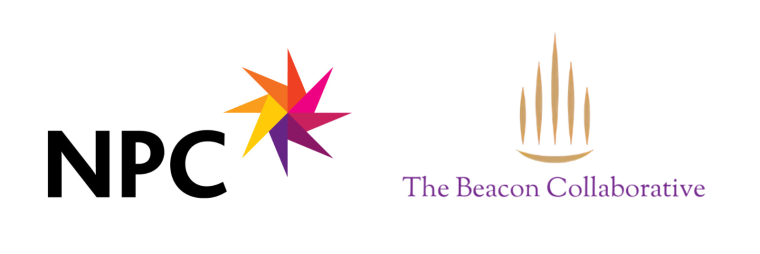
- Following successful completion of their initial five-year programme, the Beacon Collaborative will continue their mission as part of NPC.
- Beacon’s Philanthropy and Impact Forum and market measurement research to continue.
Today NPC and The Beacon Collaborative have announced a merger consolidating their activities to increase the amount and effectiveness of philanthropy in the UK.
The merger follows the completion of Beacon’s initial five-year programme to catalyse growth in philanthropy in the UK in partnership with leading sector bodies.
The Beacon Collaborative was established in 2019 by philanthropists Cath Dovey CBE and Matthew Bowcock CBE. NPC was established twenty-two years ago to help grow philanthropy by helping philanthropists understand the impact of their giving.
Coming together under the NPC brand, they will continue to focus on growing, promoting and celebrating philanthropy in the context of the UK’s expanding impact sector.
NPC Chief Executive Jonathan Simmons said:
Since launching over 20 years ago NPC has supported hundreds of philanthropists as they strive to maximise the impact of their giving.
We’re excited to be bringing Beacon’s incredible convening and advocacy power together with NPC’s deep knowledge of the UK impact sector.
Together we can focus on helping strengthen the UK’s vibrant and growing impact community.
Cath Dovey CBE said:
Since 2019, Beacon has been successful in drawing together organisations that support, promote, and celebrate philanthropy.
Through collaborative working we have achieved our mission to put the work of the UK’s philanthropy sector on the map for philanthropists, policymakers, and the wider impact community.
Our sector has a clear plan to drive growth in philanthropy and giving. I am delighted to be working with NPC to build the capacity and capability to turn that plan into action.

